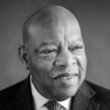Things that make white people uncomfortable
(Book)
798.08996 BENNE
2 available
Copies
| Location | Call Number | Status |
|---|---|---|
| Central - Adult Nonfiction | 798.08996 BENNE | Available |
| Central - Adult Nonfiction | 798.08996 BENNE | Available |
Description
Michael Bennett is a Super Bowl Champion, a three-time Pro Bowl defensive end, a fearless activist, a feminist, a grassroots philanthropist, an organizer, and a change maker. He's also one of the most scathingly humorous athletes on the planet, and he wants to make you uncomfortable.
Bennett adds his unmistakable voice to discussions of racism and police violence, Black athletes and their relationship to powerful institutions like the NCAA and the NFL, the role of protest in history, and the responsibilities of athletes as role models to speak out against injustice. Following in the footsteps of activist-athletes from Muhammad Ali to Colin Kaepernick, Bennett demonstrates his outspoken leadership both on and off the field.
Written with award-winning sportswriter and author Dave Zirin, Things that Make White People Uncomfortable is a sports book for our turbulent times, a memoir, and a manifesto as hilarious and engaging as it is illuminating.
More Details
Subjects
African American athletes -- Political activity.
African American athletes -- Social conditions.
Bennett, Michael, -- 1985-
Football -- Political aspects -- United States.
Football -- Social aspects -- United States.
Football players -- United States -- Biography.
Sports -- Political aspects -- United States.
Sports -- Social aspects -- United States.
Sports -- United States -- Sociological aspects.
United States -- Race relations -- 21st century.
United States -- Social conditions -- 21st century.
Also in this Series
Published Reviews
Publisher's Weekly Review
Like athletes-turned-authors Kareem Abdul-Jabbar and the late Arthur Ashe, Philadelphia Eagles defensive end Bennett uses his professional fame to shed light on American racism in these astute personal essays. Cowritten by Zirin (Brazil's Dance with the Devil), the book begins at the 2017 NFL preseason opener, where Bennett took a knee during the national anthem. He defends his decision to kneel in support of his friend, former San Francisco 49ers quarterback Colin Kaepernick, who started the practice to protest racist police violence. Bennett recounts experiencing that brutality firsthand when police officers in Las Vegas pinned him to the ground and held a gun to his head. "I know what it's like to be treated like an animal... because of my race. I was guilty until proven innocent," he writes. Over the course of these essays, Bennett condemns the way NFL players are prodded, evaluated, and inspected, which he compares to "slave auctions," where they feel like "property"; expounds on the importance of Black Lives Matter; and issues an heartfelt apology for his use of the N-word in his youth, saying that at the time he didn't understand the word's "magnitude and its power to dehumanize black people." He also shares personal stories of growing up in deeply prejudiced Louisiana, moving to San Diego with his family and witnessing gang violence there, and finding a welcoming community of "so many different types of people" in Houston. Equal parts memoir and manifesto, Bennett's book proves he can tackle the ills of society as capably as he tackles quarterbacks. (Apr.) © Copyright PWxyz, LLC. All rights reserved.
Library Journal Review
NFL defensive lineman Bennett, formerly with the Seattle Seahawks and now with the Philadelphia Eagles, is one of a growing number of black professional athletes, particularly football players, using their status as a platform to speak out against racial injustice in America. Bennett, perhaps one of the more vocal activist athletes today, tells his personal story as a means of explanation of why he speaks out, why he sits for the national anthem, and why sports figures, especially black athletes, need to be active against injustice. For Bennett, more than just Black Lives Matter, it's a larger cultural issue that is affecting all people and can only be remedied when all recognize and stand against it. It is in the intersections of these issues-whether racial, gender, political or economic-that opportunities to make progress at solving them are created, but only if people are willing to be comfortable in their discomfort. Verdict Bennett brings a unique, honest, and often humorous voice to the growing discussion of black activism in sports. Recommended for those wanting to understand more about the role of sports in shaping current events. Bennett's recent legal issues will likely bring more attention to the book and potentially create greater demand, something for public libraries to consider.-Michael C. Miller, Austin P.L. & Austin History Ctr., TX © Copyright 2018. Library Journals LLC, a wholly owned subsidiary of Media Source, Inc. No redistribution permitted.
Kirkus Book Review
An outspoken activist athlete practically dares readers to think of professional football and its players in the same way again after finishing this book.To say that Bennett, who co-authored this book with activist-minded Nation sports editor Zirin, has a chip on his shoulder would be an understatement. He was born to a teenage mother and raised by his father with his brother Martellus, also an outspoken pro football player. After the family split and he finished his college career at Texas AM, he went undrafted by the NFL because he wasn't considered "coachable"i.e., he thought too independently and spoke his mind. He calls the NCAA "a gangster operation, a shakedown, and a system that works for everyone but the so-called student-athletes." He notes how his brother has called the NFL "Niggas For Lease'and that's the most brutally honest thing I've ever heard"later, though, he engages in a nuanced analysis of that hateful epithet and its variations. He compares the dehumanizing flesh market of the NFL combine to "slave auctions," staunchly defends Colin Kaepernick as an athletic hero, and makes an impassioned defense for taking a knee or locking arms during the national anthem. In places, the book reads like the author is trying to be as provocative as possible, but he ultimately shows a commendable seriousness of purpose, providing a call to arms to other pro athletes to use their platforms for cultural responsibility and to fans to understand the human dimension of the NFL and the price paid for the on-field violence that serves as their entertainment. Bennett is particularly incisive on branding and on the conditional nature of fandom: "I'll be a football player for just a few more years," he writes, "but I'll be Black forever." He ends on a moving note of reconciliation, as he bridges the gulf with his birth mother and tries to get his father, stepmother, and brother to do the same.A fiery memoir/manifesto by an athlete with his heart in the right place. Copyright Kirkus Reviews, used with permission.
LJ Express Reviews
NFL defensive lineman Bennett, formerly with the Seattle Seahawks and now with the Philadelphia Eagles, is one of a growing number of black professional athletes, particularly football players, using their status as a platform to speak out against racial injustice in America. Bennett, perhaps one of the more vocal activist athletes today, tells his personal story as a means of explanation of why he speaks out, why he sits for the national anthem, and why sports figures, especially black athletes, need to be active against injustice. For Bennett, more than just Black Lives Matter, it's a larger cultural issue that is affecting all people and can only be remedied when all recognize and stand against it. It is in the intersections of these issues—whether racial, gender, political or economic—that opportunities to make progress at solving them are created, but only if people are willing to be comfortable in their discomfort. Verdict Bennett brings a unique, honest, and often humorous voice to the growing discussion of black activism in sports. Recommended for those wanting to understand more about the role of sports in shaping current events. Bennett's recent legal issues will likely bring more attention to the book and potentially create greater demand, something for public libraries to consider.—Michael C. Miller, Austin P.L. & Austin History Ctr., TX (c) Copyright 2018. Library Journals LLC, a wholly owned subsidiary of Media Source, Inc. No redistribution permitted.
PW Annex Reviews
Like athletes-turned-authors Kareem Abdul-Jabbar and the late Arthur Ashe, Philadelphia Eagles defensive end Bennett uses his professional fame to shed light on American racism in these astute personal essays. Cowritten by Zirin (Brazil's Dance with the Devil), the book begins at the 2017 NFL preseason opener, where Bennett took a knee during the national anthem. He defends his decision to kneel in support of his friend, former San Francisco 49ers quarterback Colin Kaepernick, who started the practice to protest racist police violence. Bennett recounts experiencing that brutality firsthand when police officers in Las Vegas pinned him to the ground and held a gun to his head. "I know what it's like to be treated like an animal... because of my race. I was guilty until proven innocent," he writes. Over the course of these essays, Bennett condemns the way NFL players are prodded, evaluated, and inspected, which he compares to "slave auctions," where they feel like "property"; expounds on the importance of Black Lives Matter; and issues an heartfelt apology for his use of the N-word in his youth, saying that at the time he didn't understand the word's "magnitude and its power to dehumanize black people." He also shares personal stories of growing up in deeply prejudiced Louisiana, moving to San Diego with his family and witnessing gang violence there, and finding a welcoming community of "so many different types of people" in Houston. Equal parts memoir and manifesto, Bennett's book proves he can tackle the ills of society as capably as he tackles quarterbacks. (Apr.)
Copyright 2018 Publishers Weekly Annex.Reviews from GoodReads
Citations
Bennett, M., & Zirin, D. (2018). Things that make white people uncomfortable . Haymarket Books.
Chicago / Turabian - Author Date Citation, 17th Edition (style guide)Bennett, Michael, 1985- and Dave, Zirin. 2018. Things That Make White People Uncomfortable. Chicago, Illinois: Haymarket Books.
Chicago / Turabian - Humanities (Notes and Bibliography) Citation, 17th Edition (style guide)Bennett, Michael, 1985- and Dave, Zirin. Things That Make White People Uncomfortable Chicago, Illinois: Haymarket Books, 2018.
Harvard Citation (style guide)Bennett, M. and Zirin, D. (2018). Things that make white people uncomfortable. Chicago, Illinois: Haymarket Books.
MLA Citation, 9th Edition (style guide)Bennett, Michael, and Dave Zirin. Things That Make White People Uncomfortable Haymarket Books, 2018.


































